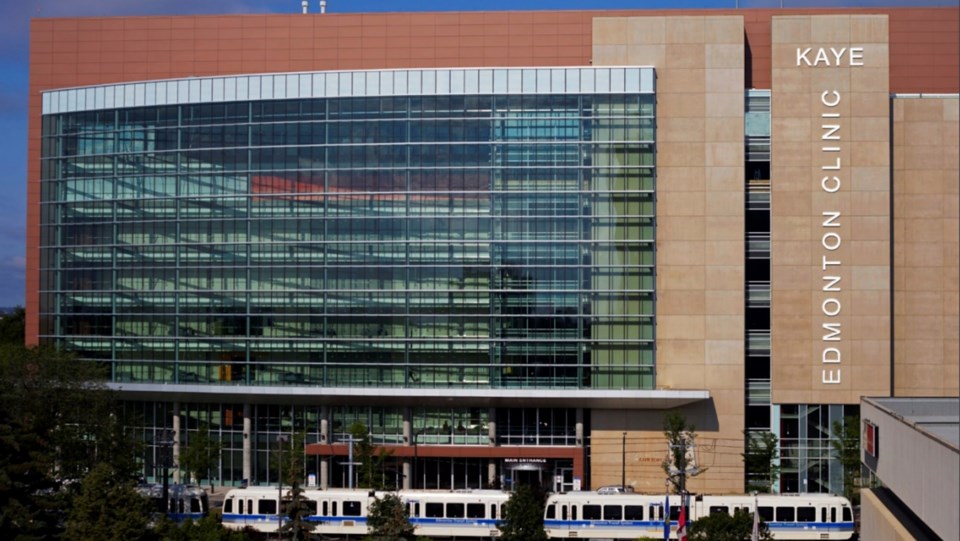More than two years after he succumbed to the SARS-CoV-2 coronavirus, Doug Norman’s long COVID symptoms are so severe he still can’t return to work as a letter carrier with Canada Post.
In addition to dizziness and brain fog, he can’t muster the concentration to drive. There is also his farm to run, which he does in fits and starts, taking breaks when overcome with exhaustion.
“It feels like there's a big clamp squeezing my head,” said Norman. A few weeks ago, the 62-year-old was put on a steroid inhaler to ease his difficulty with breathing.
“I do whatever I can, go as hard as I can until I have no energy left. Then I go back into the house. That’s how I live my life now. It’s not the best, but you do whatever you have to do to survive.”
Most puzzling is that Norman’s original infection wasn’t severe. More like a head cold, he says, adding, "I just kept getting more symptoms as time went on."
Norman is one of thousands in Alberta suffering from a range of post-COVID symptoms long after contracting the virus. According to Statistics Canada, almost 15 per cent of Canadian adults who have had, or thought they had, COVID-19 still struggle with symptoms at least three months after their initial infection.
To meet the needs of that population, a post-COVID-19 clinic at the University of Alberta, the first and largest in the province, opened in June 2021. Since then, the Long COVID Clinic has seen about 800 patients — and had about 1,500 referred — who suffer from symptoms that persist at least 12 weeks beyond the original COVID-19 diagnosis.
A one-stop, multidisciplinary facility with a variety of physicians and therapists, the clinic began operating one half-day every two weeks when launched, but is now up to five half-days per week. Patients are referred to the clinic by their family physicians.
“We’re seeing a lot of fatigue, shortness of breath and neurocognitive disturbances,” said clinic co-director Grace Lam.
Patients with long COVID complain of myriad neurologic symptoms, adds clinic co-director Maeve Smith. They include persistent loss of sense of smell and taste, nerve pain and weakness, insomnia and problems with short-term memory, concentration and focus.
“Patients are often unable to return to work because their physical and cognitive function isn’t where it needs to be," said Smith. “Or they have to find a daycare because they can’t run around after their toddler.”
The median age of patients at the clinic is 49, “very much a working population,” she said, adding there also seems to be a “female predominance” among the cohort.
“These are individuals at the height of their careers who tell us, ‘I can’t read a document. I finish one paragraph and can’t remember what I just read,’” said Lam. “If you think about who makes up the workforce, and the age range this affects — that’s a huge hit on society as a whole.”
Perhaps most puzzling, say Lam and Smith, is that long COVID can affect anyone, regardless of the severity of the initial infection or even whether or not it was symptomatic. That means the latest variants of the virus could cause symptoms long after a mild illness.
Included on the clinic’s team are a neurologist and experts in immunology, hematology and cardiology. There is also an expert in POTS disease — or postural orthostatic tachycardia syndrome — a condition affecting blood flow that can cause light-headedness, fainting and an uncomfortable rapid increase in heartbeat.
So far, treatment for long COVID is limited, said Lam, because the root causes of symptoms are still poorly understood.
Even conventional physical rehabilitation has its limits, according to Doug Gross, director of the U of A’s Rehabilitation Research Centre.
“The old-fashioned techniques of physical retraining and building muscles have been tried, and quite often they fail. We are learning that pacing and strategies for conserving energy may be more effective for some," he said.
Alberta Health Services recommends people manage mild long-COVID symptoms at home with the support of online resources and their primary care team.
As for Norman, every day continues to be a struggle as he searches for treatment solutions with specialists at the clinic. Because of his ongoing fatigue, he sees a rheumatologist who monitors him for signs of chronic fatigue syndrome.
“The challenge is to find a happy medium — how much you can do every day,” he said. “Some days I talk to myself and say, ‘Doug, you gotta suck it up, you gotta battle a little harder. One day, everything's rolling along. And the next you're a totally different person.”
But he says finding the post-COVID clinic has meant everything to his state of mind.
“I told Dr. Lam on the phone, ‘Lucky thing you’re not here in person because I’d give you a big hug.’”
Article courtesy of University of Alberta folio



